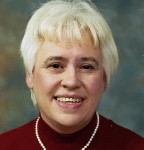
by Denise Robitaille
In my column, “What Makes for a Good Auditor” (The Auditor, May-June 2014), I introduced the subject of auditor traits. Effective auditors exhibit traits that allow them to provide meaningful audit information that, in turn, creates value for the organization.
These traits are not simple niceties promulgated by academics with only an esoteric model of how idealistic auditor behavior might manifest in some unspecified quality utopia. These are core requirements fundamental to all competent qualified auditors. Absence of these traits can prove to be a serious detriment to the audit process.
As enumerated in ISO 19011, these traits include: ethical behavior, open-mindedness, diplomacy, observational skills, perception, versatility, tenacity, decisiveness, self-reliance, fortitude, openness to improvement, cultural sensitivity, and collaboration. It deserves reiteration: These are not idealistic abstractions. These are essential requirements for all auditors.
“What Makes for a Good Auditor” dealt with the first half: ethical behavior, open-mindedness, diplomacy, observational skills, perception, versatility, and tenacity.
This article will address the balance of the traits put forth in ISO 19011.
Decisive. Once the evidence has been gathered and the interviews are complete, the auditor must be able to conclude that either the process is well-controlled and conforms to established requirements or it doesn’t, in which case a finding of nonconformance must be written. It’s also important to be able to determine whether a small finding is an anomaly of negligible importance that can be fixed easily or if that finding is instead symptomatic of a much larger problem.
Self-reliant. Auditors are often on their own (without a team). They need to be able to manage all aspects of the audit from planning to execution to the audit report and follow-up. There is no sounding board against which they can bounce their deliberations. They weigh the evidence and understand its importance. In the end, they assume full responsibility for their decisions.
Acting with fortitude. This is pretty much a roll-up of the last three traits. Auditors need to be tenacious, diplomatic, and decisive without causing confrontations and while achieving the audit objectives. This requires auditors to have thick skin. Although confrontations are rarer than hysteria would suggest, there are times when auditees may challenge a finding. Auditors need the fortitude to defend their findings. This can only happen if they’ve employed good audit practices such as gathering adequate objective evidence and tying findings to the relevant requirements of the audit standards. Without assiduous adherence to auditor fundamentals, the ability to develop defensible positions in relation to audit findings is significantly diminished.
Open to improvement. The flipside of the previously mentioned tenacity and fortitude is the need to be vigilant against becoming obstinate or stagnant. We all can (and should) be continuously learning. A fellow auditor may have a more effective interviewing style or a more refined manner of articulating a finding.
Culturally sensitive. This is a close cousin to diplomacy. Both remind me of a sign I once saw in New Orleans: “Be nice or be gone.” There’s never any excuse for being disrespectful, condescending, or flippant.
There are some instances in which cultural differences may become an issue. For example, there are some cultures in which findings of nonconformity result in individuals losing face in the organization. Auditors need to be sensitive to these eventualities and be scrupulous in articulating their findings in such a way as to mitigate the likelihood that one person may experience humiliation or disgrace as the result of a nonconformity.
Collaborative. If an auditor is part of a team, he or she has to interact efficiently with other team members. The success of the audit is reliant on the manifestation of this trait. There are multiple interrelations in any QMS. Audit team collaboration should be reflective of comparable comprehension of these interrelations. The result should be audit team interactions that address the complexities inherent in many systems and allow for appropriate assessment of the effectiveness of those interrelations. This requires auditors to communicate regularly and effectively to ensure that a thorough and comprehensive audit is conducted and that conclusions are appropriate.
Auditing is a profession, even for those individuals who only conduct internal audits a few times a year. The profession is reliant on the integrity of the auditors and their consistent adherence to audit fundamentals as demonstrated in these auditor traits. There is no excuse for anything less.
About the author
Denise Robitaille is a member of the U.S. TAG to ISO/TC 176, the committee responsible for updating the ISO 9000 family of standards. She is committed to making your quality system meaningful. Through training, Robitaille helps you turn audits, corrective actions, management reviews, and processes of implementing ISO 9001 into value-added features of your company. She’s an Exemplar Global-certified lead assessor, ASQ-certified quality auditor, and ASQ Fellow. She’s the author of numerous articles and several books, including The Corrective Action Handbook and The Preventive Action Handbook, and her latest book, 9 Keys to Successful Audits, all published by Paton Professional.

